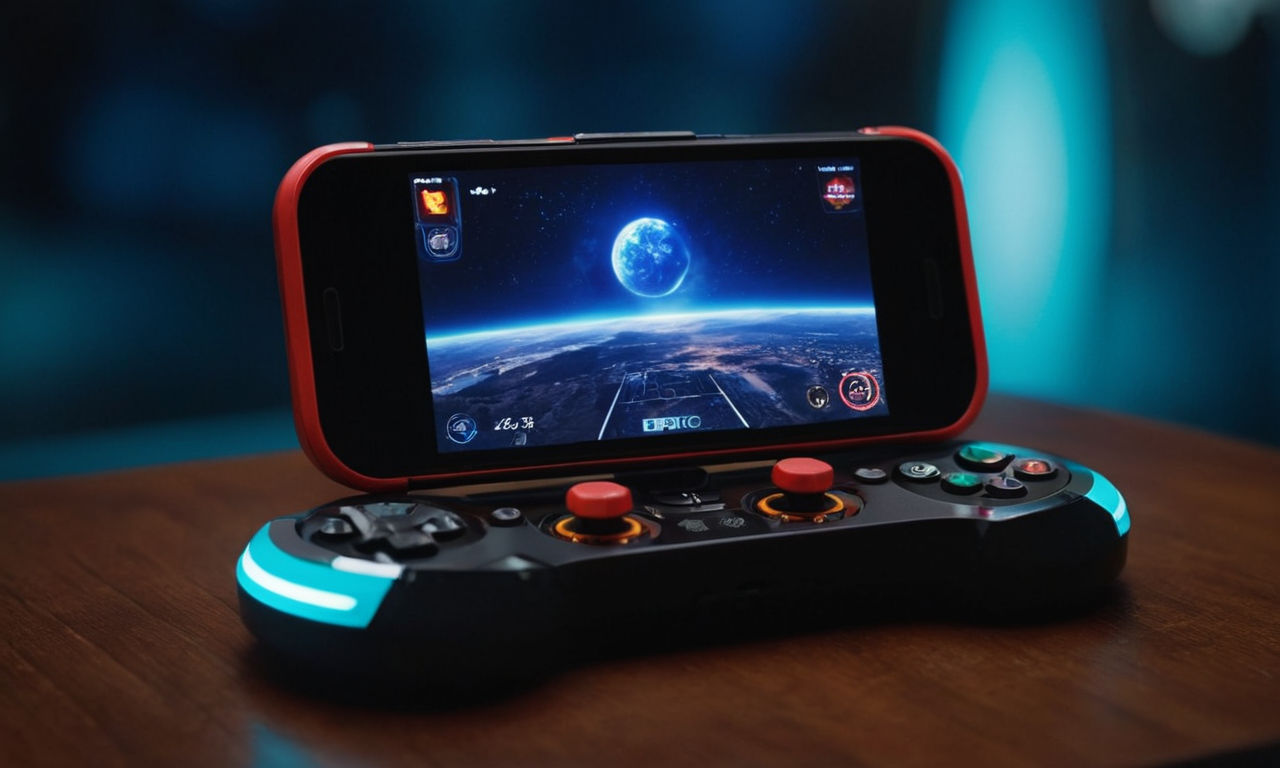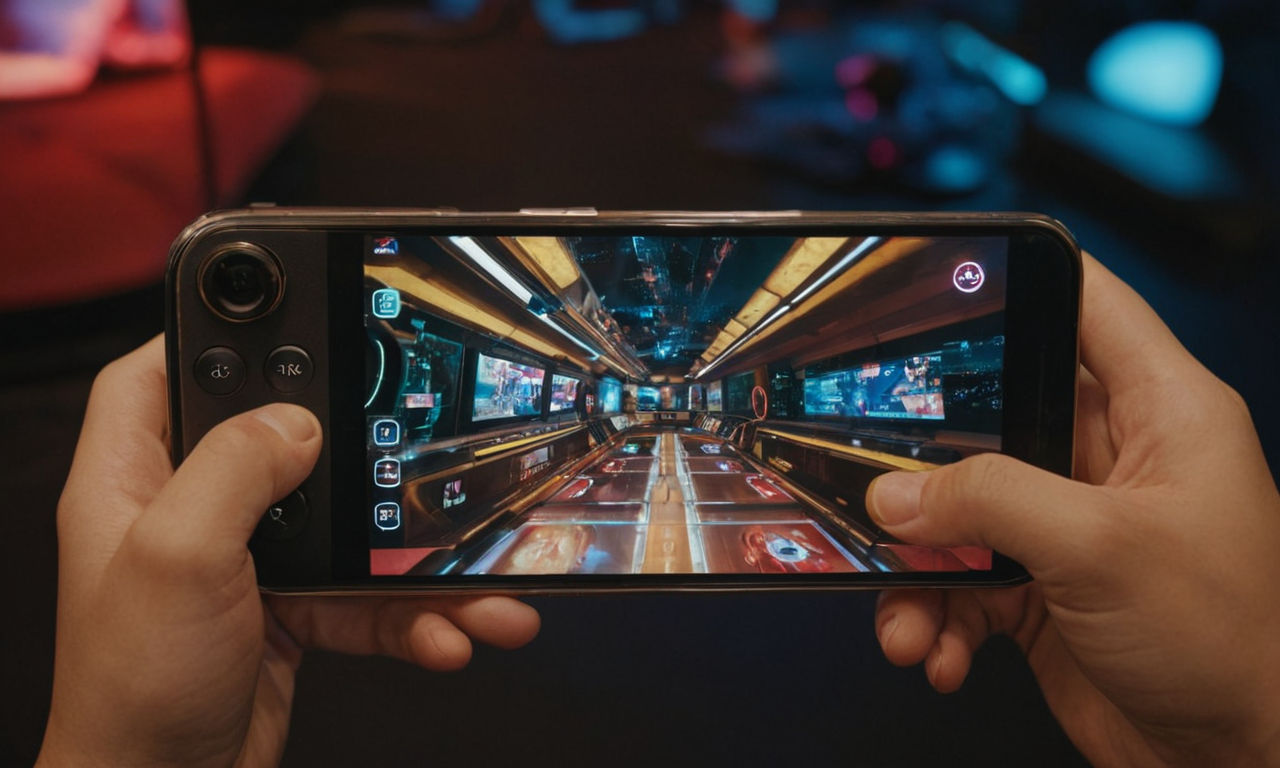Introduction
The mobile gaming industry is evolving at a rapid pace, shaping the way we play and interact with games. Staying abreast of the latest trends is crucial for both game developers and players alike. Let's delve into the exciting world of mobile gaming and explore what the future holds for this dynamic industry.
Understanding the Landscape of Mobile Gaming
Mobile gaming has seen exponential growth in recent years, becoming a dominant force in the gaming market. With the convenience of playing on-the-go, coupled with technological advancements in smartphones, the appeal of mobile games has expanded beyond traditional gaming demographics. Players of all ages and backgrounds are embracing mobile gaming as a form of entertainment, contributing to its widespread popularity.
The Current State of the Mobile Gaming Market: The mobile gaming market is thriving, with an ever-increasing number of players engaging with a diverse range of games. From casual puzzle games to immersive multiplayer experiences, the variety of mobile games available caters to a broad audience.
Popularity Among Different Demographics: Mobile games have successfully attracted a wide spectrum of players, including casual gamers, competitive enthusiasts, and even older demographics seeking entertainment. The accessibility and ease of play inherent in mobile gaming have made it a favorite pastime for many.
Key Trends in Mobile Gaming for 2023
As we look ahead to 2023, the mobile gaming industry is set to witness exciting developments and trends that will shape the future of gaming. Let's explore some of the key trends that are expected to drive innovation and growth in the mobile game blog sphere:
Cross-Platform Integration: Mobile games are increasingly breaking down barriers between different platforms, allowing players to enjoy seamless gaming experiences across mobile devices, consoles, and PCs.
Augmented Reality (AR) and Virtual Reality (VR): The integration of AR and VR technologies into mobile games is revolutionizing the way players interact with virtual worlds, offering immersive and engaging gameplay experiences.
Blockchain Gaming: The adoption of blockchain technology in mobile games is paving the way for unique in-game economies, ownership of digital assets, and enhanced security for players.
Live Events and Social Interactions: Mobile games are incorporating live events, social features, and community interactions to foster player engagement and create a sense of belonging within the gaming community.
Personalized Gaming Experiences: Game developers are leveraging data analytics and player insights to deliver personalized gaming experiences tailored to individual preferences, enhancing player retention and satisfaction.
By staying informed about these trends and embracing the evolving landscape of mobile gaming, developers and players can anticipate the exciting possibilities that lie ahead in this dynamic industry.

Emerging Technologies in Mobile Gaming
In the rapidly evolving landscape of mobile gaming, staying abreast of emerging technologies is crucial for developers looking to create innovative and engaging gaming experiences. The utilization of cutting-edge technologies is set to revolutionize mobile game development, offering new possibilities for immersive gameplay and enhanced graphics. Some of the key technologies shaping the future of mobile gaming include:
Augmented Reality (AR) and Virtual Reality (VR):
AR and VR technologies have the potential to transform mobile games by overlaying digital content onto the real world or creating immersive virtual environments. Games like Pokemon Go and Beat Saber have already demonstrated the capabilities of AR and VR in enhancing player immersion and interaction.
Cloud Gaming:
Cloud gaming services are gaining popularity, allowing players to stream games directly to their devices without the need for high-end hardware. This technology enables gamers to access a vast library of titles on-the-go, revolutionizing the way games are played and distributed.
Artificial Intelligence (AI):
AI-driven technologies are enhancing mobile games through features like personalized recommendations, intelligent NPCs, and dynamic game difficulty adjustments. AI-powered algorithms can analyze player behavior and adapt gameplay in real-time, creating a more customized and engaging experience.
The impact of these technologies on the gaming experience is substantial, offering developers the opportunity to create more captivating and interactive mobile games that push the boundaries of traditional gaming norms.
User Behavior in Mobile Gaming
Understanding user behavior in mobile gaming is essential for developers and publishers aiming to design games that resonate with players and drive user engagement. As user preferences and behaviors in mobile gaming continue to evolve, analyzing these trends can provide valuable insights into creating successful monetization strategies and fostering long-term player loyalty. Key aspects of user behavior to consider include:
Changing User Preferences:
The shift towards mobile gaming has influenced user preferences, with players now seeking seamless gameplay experiences, social interactions, and customization options. Developers need to adapt to these preferences by offering engaging content that caters to diverse player interests.
In-Game Monetization Strategies:
Monetization in mobile games has evolved beyond traditional one-time purchases to include in-app purchases, subscriptions, and advertising. Understanding player spending habits and preferences is crucial for implementing effective monetization models without compromising the player experience.
Player Engagement Tactics:
Engaging players and fostering a sense of community within mobile games are vital for driving retention and maximizing player lifetime value. Features like social sharing, in-game events, and personalized rewards can enhance player engagement and create a more immersive gaming experience.
By analyzing user behavior trends and aligning game development strategies with player preferences, developers can create mobile games that resonate with audiences and drive sustainable growth in the competitive gaming market.
Future of Mobile Games

The future of mobile games holds exciting prospects for developers, players, and industry stakeholders, as technological advancements continue to shape the gaming landscape. Anticipating the direction in which mobile games are headed involves forecasting how innovations and consumer demands will influence game development and user experiences. Key considerations for the future of mobile games include:
Technological Advancements:
As technology continues to advance, mobile games are likely to become more immersive, realistic, and interactive. Innovations such as 5G connectivity, augmented reality glasses, and haptic feedback devices have the potential to transform how games are played and experienced on mobile devices.
Consumer Demands:
Meeting evolving consumer demands for unique gameplay experiences, cross-platform compatibility, and socially connected gaming environments will be critical for the future success of mobile games. Developers must adapt to changing player expectations and market trends to remain competitive in the dynamic gaming industry.
By forecasting trends and embracing technological innovations, the future of mobile games is poised to offer players unprecedented gaming experiences, driving growth and innovation in the mobile gaming market.
Mobile Game Development Strategies
The landscape of mobile game development is continuously evolving, driven by advancements in technology and changing player preferences. Developers face the challenge of creating engaging and successful mobile games in a highly competitive market. Here are some key insights and best practices for developers to excel in this dynamic environment:
Understanding Player Behavior
Analyzing player behavior patterns and preferences is essential for creating tailored gaming experiences.
Utilizing data analytics and user feedback to continuously refine and enhance game features to match player expectations.
Embracing Emerging Technologies
Integration of augmented reality (AR) and virtual reality (VR) technologies to provide immersive gaming experiences.
Incorporating artificial intelligence (AI) for personalized gameplay and dynamic content generation.

Monetization Strategies
Implementing a balanced approach to in-game monetization through ads, in-app purchases, and subscription models.
Leveraging social gaming features and multiplayer modes to boost player engagement and retention.
Cross-Platform Compatibility
Ensuring seamless gameplay experience across multiple devices and operating systems.
Implementing cloud gaming services to enable players to access games on various platforms without compromising performance.
By staying updated on industry trends and leveraging innovative technologies, developers can create mobile games that resonate with audiences and stand out in a competitive market.
Mobile Gaming Market Insights
The mobile gaming industry is witnessing rapid growth, fueled by advancements in technology, changing consumer behavior, and increasing market penetration. Understanding the market dynamics and key trends is crucial for stakeholders to make informed decisions and capitalize on opportunities. Here are some insights into the current trends shaping the mobile gaming market:
Rise of Hyper-Casual Games: The popularity of hyper-casual games continues to grow, driven by their simple gameplay mechanics and quick sessions.
Expansion of Esports: Mobile esports are gaining traction, with tournaments and competitive leagues attracting a large and engaged audience.
Innovations in Game Streaming: The emergence of cloud gaming platforms and game streaming services is revolutionizing how games are accessed and played.
Integration of Social Features: Social gaming elements such as in-game chat, leaderboards, and multiplayer modes are becoming standard, enhancing player interaction and retention.
Key drivers influencing the growth and competitiveness of the mobile gaming market include technological advancements, shifting demographics, and evolving monetization models. Adapting to these trends and embracing innovation is essential for industry players to stay competitive and meet the demands of a dynamic market landscape.
Conclusion
In conclusion, the mobile gaming industry is poised for continued growth and innovation in 2023. Developers and stakeholders must adapt to the changing trends and technologies to stay ahead of the curve. By focusing on player engagement, embracing new technologies, and understanding market dynamics, businesses can position themselves for success in the dynamic and fast-paced world of mobile gaming. Stay informed, stay creative, and stay ahead of the game!



